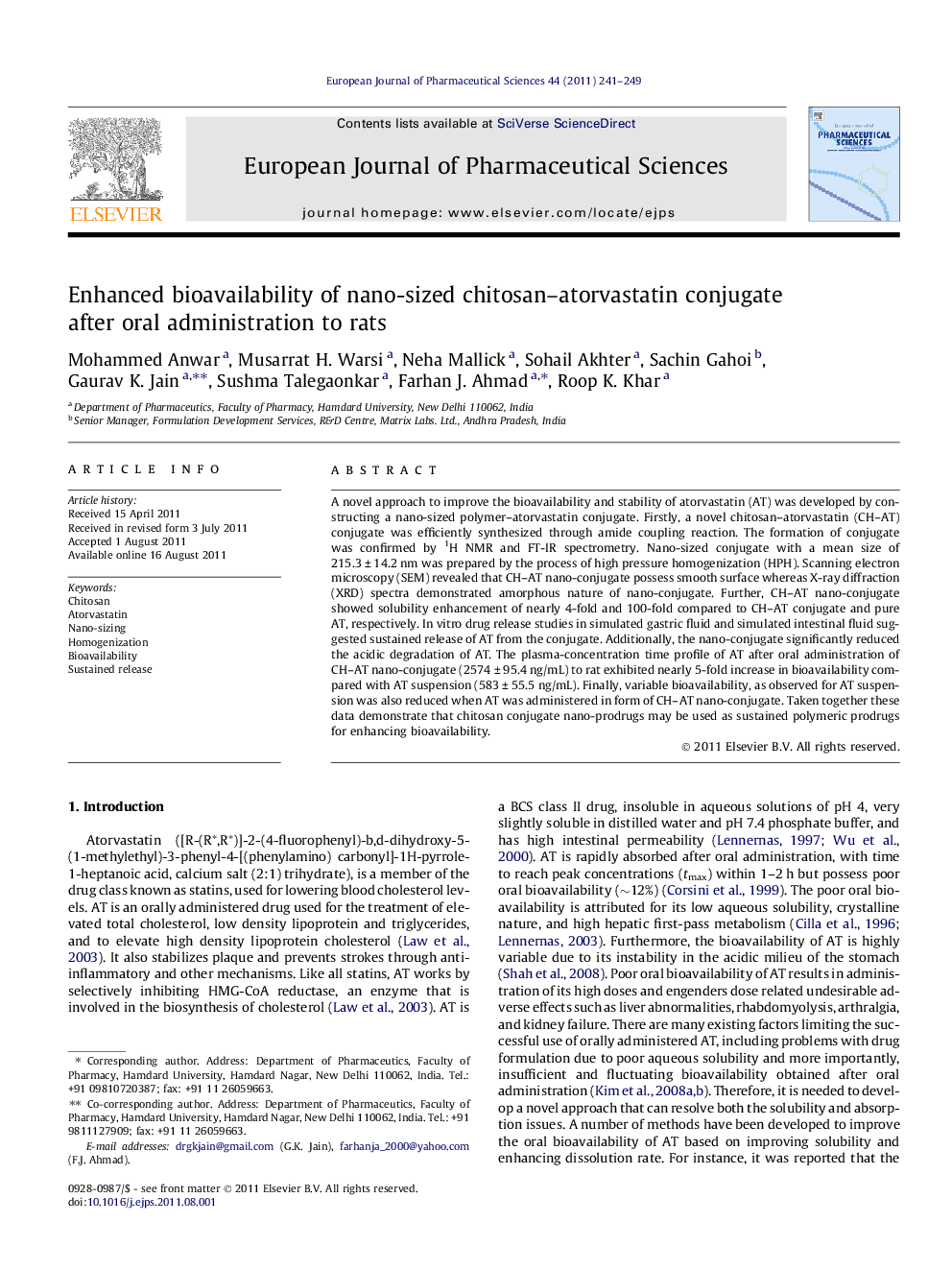| Article ID | Journal | Published Year | Pages | File Type |
|---|---|---|---|---|
| 2480983 | European Journal of Pharmaceutical Sciences | 2011 | 9 Pages |
A novel approach to improve the bioavailability and stability of atorvastatin (AT) was developed by constructing a nano-sized polymer–atorvastatin conjugate. Firstly, a novel chitosan–atorvastatin (CH–AT) conjugate was efficiently synthesized through amide coupling reaction. The formation of conjugate was confirmed by 1H NMR and FT-IR spectrometry. Nano-sized conjugate with a mean size of 215.3 ± 14.2 nm was prepared by the process of high pressure homogenization (HPH). Scanning electron microscopy (SEM) revealed that CH–AT nano-conjugate possess smooth surface whereas X-ray diffraction (XRD) spectra demonstrated amorphous nature of nano-conjugate. Further, CH–AT nano-conjugate showed solubility enhancement of nearly 4-fold and 100-fold compared to CH–AT conjugate and pure AT, respectively. In vitro drug release studies in simulated gastric fluid and simulated intestinal fluid suggested sustained release of AT from the conjugate. Additionally, the nano-conjugate significantly reduced the acidic degradation of AT. The plasma-concentration time profile of AT after oral administration of CH–AT nano-conjugate (2574 ± 95.4 ng/mL) to rat exhibited nearly 5-fold increase in bioavailability compared with AT suspension (583 ± 55.5 ng/mL). Finally, variable bioavailability, as observed for AT suspension was also reduced when AT was administered in form of CH–AT nano-conjugate. Taken together these data demonstrate that chitosan conjugate nano-prodrugs may be used as sustained polymeric prodrugs for enhancing bioavailability.
Graphical abstractFigure optionsDownload full-size imageDownload as PowerPoint slide
